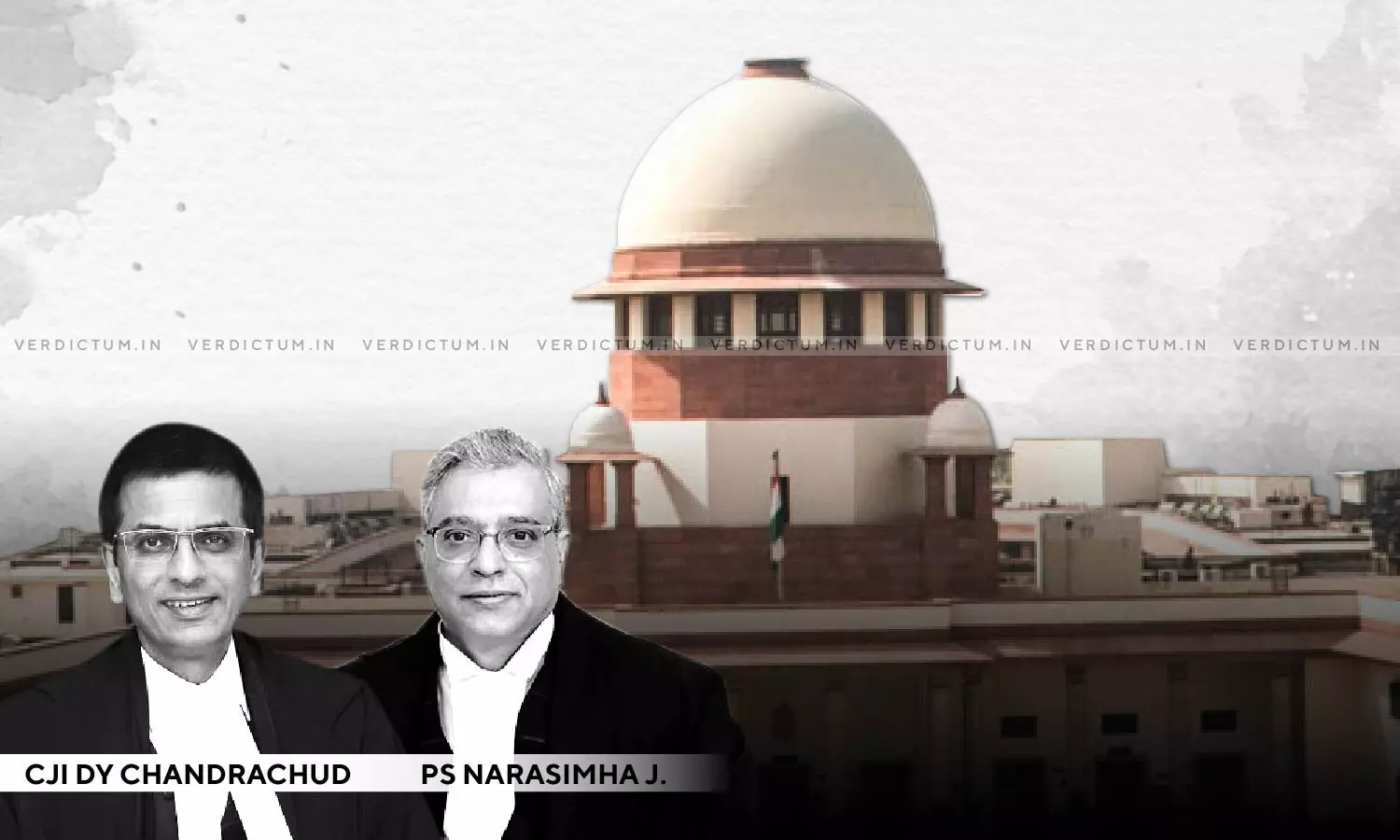
Vacancies Not Necessarily Be Filled Based On Law Which Existed On Date When They Arose: Reiterates SC
 |
|The Supreme Court while dealing with the appeals has reiterated that the vacancies are not required to be filled on the basis of law which existed on the date when they arose.
The two-Judge Bench comprising CJI D.Y. Chandrachud and Justice P.S. Narasimha held, “In view of the clear enunciation of the law, we have no hesitation in rejecting the submission made by the learned counsels for the Respondents, that the vacancies that existed prior to the amendment of Regulation 17 of Chapter II, must be governed by unamended rules.”
The Bench relied upon its judgment in the case of State of Himachal Pradesh and Ors. v. Raj Kumar and Ors. 2022 SCC OnLine SC 680 wherein it was observed that there is no rule of universal application that vacancies must be necessarily filled on the basis of the law which existed on the date when they arose and that when there is no statutory duty cast upon the State to consider appointments to vacancies that existed prior to the amendment, the State cannot be directed to consider the cases.
ASG Vikramjit Banerjee, Senior Advocate V.K. Shukla, and Advocate Harish Pandey appeared on behalf of the State while Advocates Shankey Agrawal and Vikash Singh appeared on behalf of the respondents.
Brief Facts -
The two minority institutions initiated the process of selection of Teachers and forwarded their proposals to the DIOS (District Inspector of Schools) for approval and before the requisite approval was granted, the Government amended Regulation 17, prescribing a new procedure for selection and consequently, the DIOS returned the proposal for compliance with the new procedure. The institutions challenged the DIOS’ decision requiring the Management to follow the new Rules before the Allahabad High Court.
The High Court held that, once the Management forwards the names for approval of the DIOS, the selection process concludes and the proposed candidates acquire a vested right to be appointed and also referred to and relied on a principle that vacancies that arise prior to the amendment of Rules have to be governed by the Rules that existed at the time such vacancies arose. The State of Uttar Pradesh being aggrieved by the same was in appeal before the Apex Court.
The Supreme Court in the above context asserted, “In view of the clear statutory mandate under Section 16-FF(3) of the Act, we are of the opinion that the High Court has committed an error in coming to the conclusion that the Respondent nos. 1 to 3 have acquired a vested right to be appointed. … In any case, when the relevant statutory provision, i.e. Section 16-FF(3) itself makes approval by DIOS mandatory for appointment to the post of teacher, a Regulation made under the Act could not have provided for a ‘deemed appointment’.”
The Court further noted that the subordinate legislation cannot transcend the prescription of a statutory provision.
“If the statutory provisions read with relevant Regulations were to provide for ‘deemed appointment’, there would not have been a further remedy against an order of disapproval by the DIOS. Sub-section (5) of section 16-FF provides the remedy to the College Management in the event the DIOS does not grant an approval”, said the Court.
The Court held that the Management can within three weeks from the date of receipt of disapproval, make a representation to the Regional Deputy Director of Education.
“In view of the legal provision as obtained under Section 16- FF of the Act, read with Regulation 18, we reject the submissions of the Respondents’ that there is a ‘deemed appointment’ of selection under Regulation 18. … it is now a settled principle of law that a candidate has a right to be considered in the light of existing Rules, which implies Rules in force as on the date of consideration”, observed the Court.
Accordingly, the Court allowed the appeals and set aside the judgments of the High Court.
Cause Title- The State of Uttar Pradesh & Ors. v. Rachna Hills & Ors.